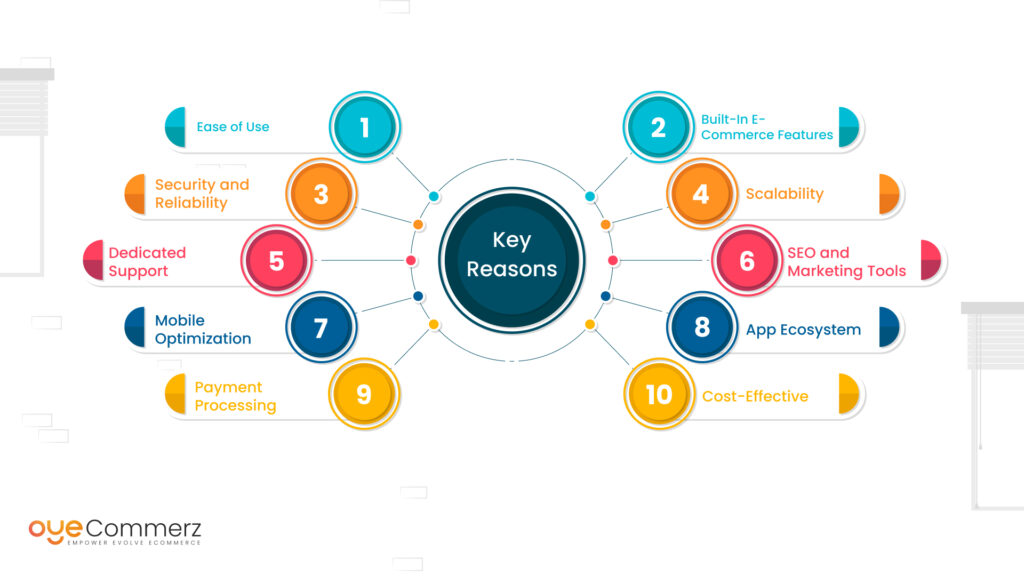In the constantly changing sphere of digital commerce, picking the best platform is essential for your business's success. If you’re currently using WP and considering a migration to an alternative, you’re not the only one. Many businesses are shifting to utilize Shopify’s comprehensive features, user-friendliness, and growth potential. This guide will guide you on the journey of migrating from WP to Shopify seamlessly, ensuring that you achieve your online retail potential.
Why Transition from WordPress to Shopify?
Ahead of exploring the migration journey, it’s crucial to realize why this change can be advantageous for your eCommerce business:
Accessible Tools: Shopify offers an intuitive system that streamlines store management, enabling for non-technical users.
Growth Potential: As your business develops, Shopify can handle increased visitors and transactions without compromising efficiency.
All-in-One Solutions: Shopify includes built-in resources for search engine optimization, analytics, payment processing, and additional functionalities, minimizing the necessity for multiple plugins.
Advanced Safeguards: With Shopify, you get access to advanced security features that safeguard sensitive customer information.
Steps for a Seamless Migration
Migrating your eCommerce site from WordPress to Shopify includes multiple phases.
Here’s steps to achieve a smooth transition:
Prepare Your Migration Strategy
Kick-off by drafting your migration blueprint. Identify which aspects of your current site you plan to transfer, such as:
Inventory information
Client data
Purchase logs
Articles
Choose the Appropriate Migration Package
Based on your needs, opt for a migration package that fits your eCommerce goals. Professional services delivers several plans:
Entry-Level Plan: Perfect for boutique stores with limited products.
Regular Option: Suitable for growing businesses with more complex needs.
Premium Migration Package: Excellent for high-volume stores requiring custom customization.
Backup Your Information
Ahead of initiating the migration, make sure that you Shopify for traffic growth have a comprehensive backup of your WordPress site. This action is essential in case anything goes awry during the move.
Export Your Content from WP
Utilize plugins or custom scripts to extract essential content from your WP site:
Inventory
Customers
Transactions
Content pieces
Migrate Data into Shopify
Once you have your content retrieved, utilize Shopify’s import tools or external apps to upload your content into your Shopify store. Ensure that all data is properly organized and placed.
Adapt Your Shopify Store
After migrating information, adjust your Shopify store’s layout to reflect with your brand identity. Consider engaging a specialist if you want detailed customization.
Set Up Payment Gateways and Logistics
Set up billing solutions and logistics options in Shopify to facilitate a smooth transaction experience for customers.
Apply Search Engine Optimization Guidelines
To keep your online visibility during the transition:
Set up 301 redirects from previous URLs to migrated ones.
Revise metadata.
Adjust visual content and copy for better ranking.
Evaluate Your Migrated Platform
Before launching, completely check your Shopify store. Check for any broken links, checkout failures, or untransferred content.
Publish Your Store
Once everything is in place, Shopify design customization it’s time to launch! Inform the update to your users and invite them to experience the updated capabilities of your Shopify store.
Post-Migration Assistance
Even after launching your new store, regular assistance is key. Think about working with professionals who can assist with:
Technical support
Marketing strategies
Improvement strategies
Conclusion
Migrating from WordPress to this platform can be a crucial step for your digital business. By adopting this guide and utilizing professional services like those offered by industry leaders, you can achieve a smooth transition that boosts your online presence. Accept the opportunity and realize the potential of Shopify today!
